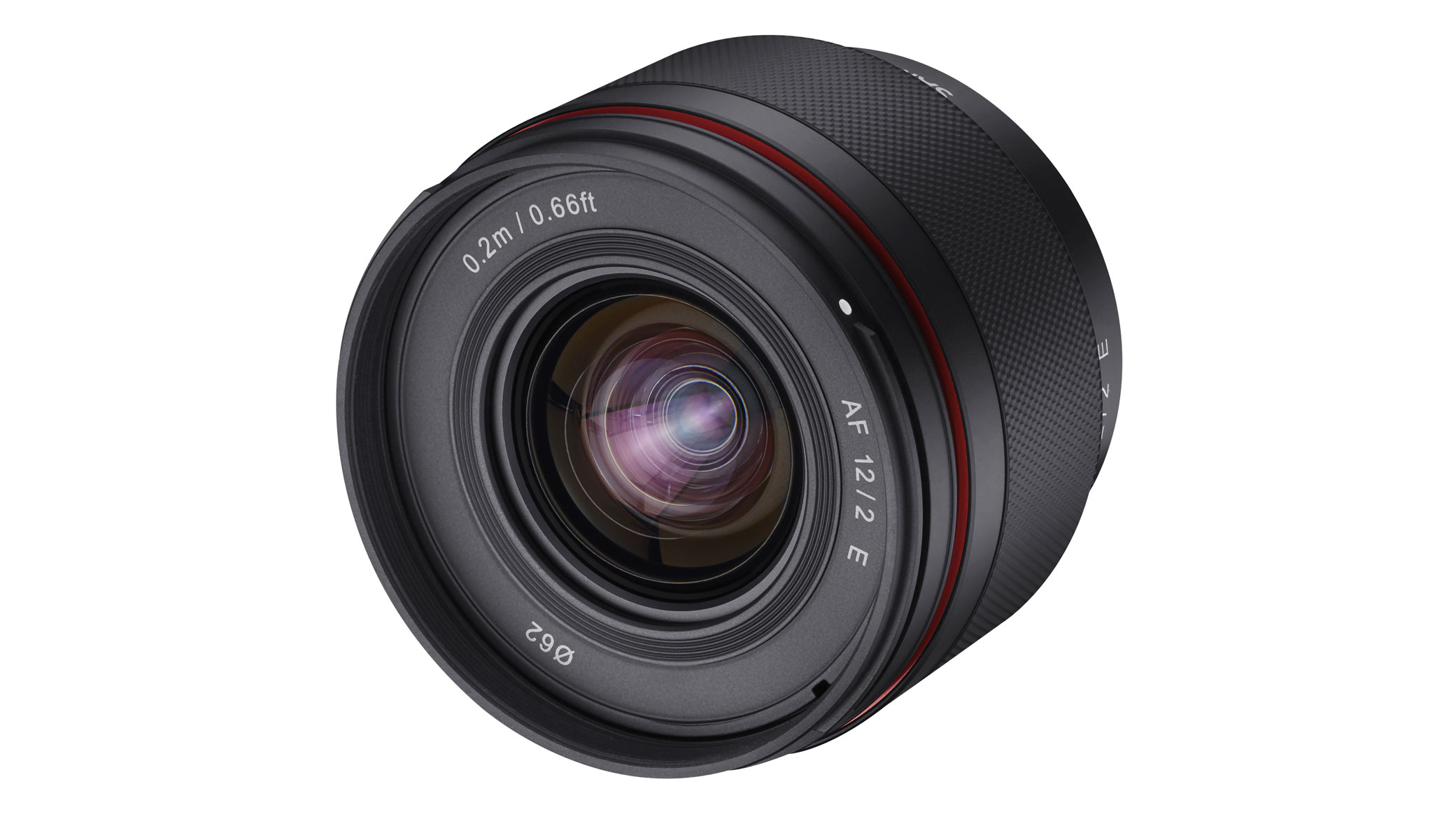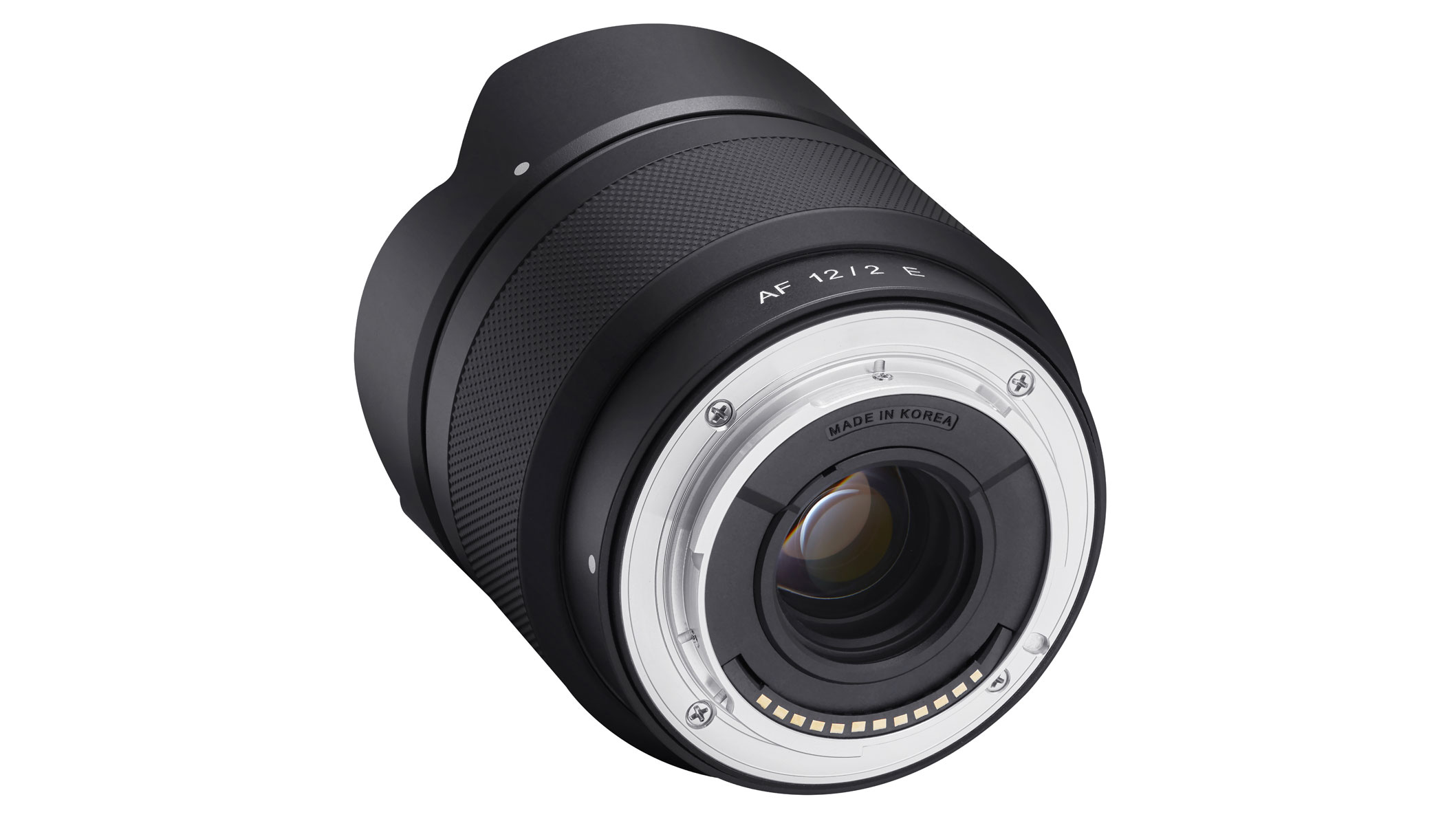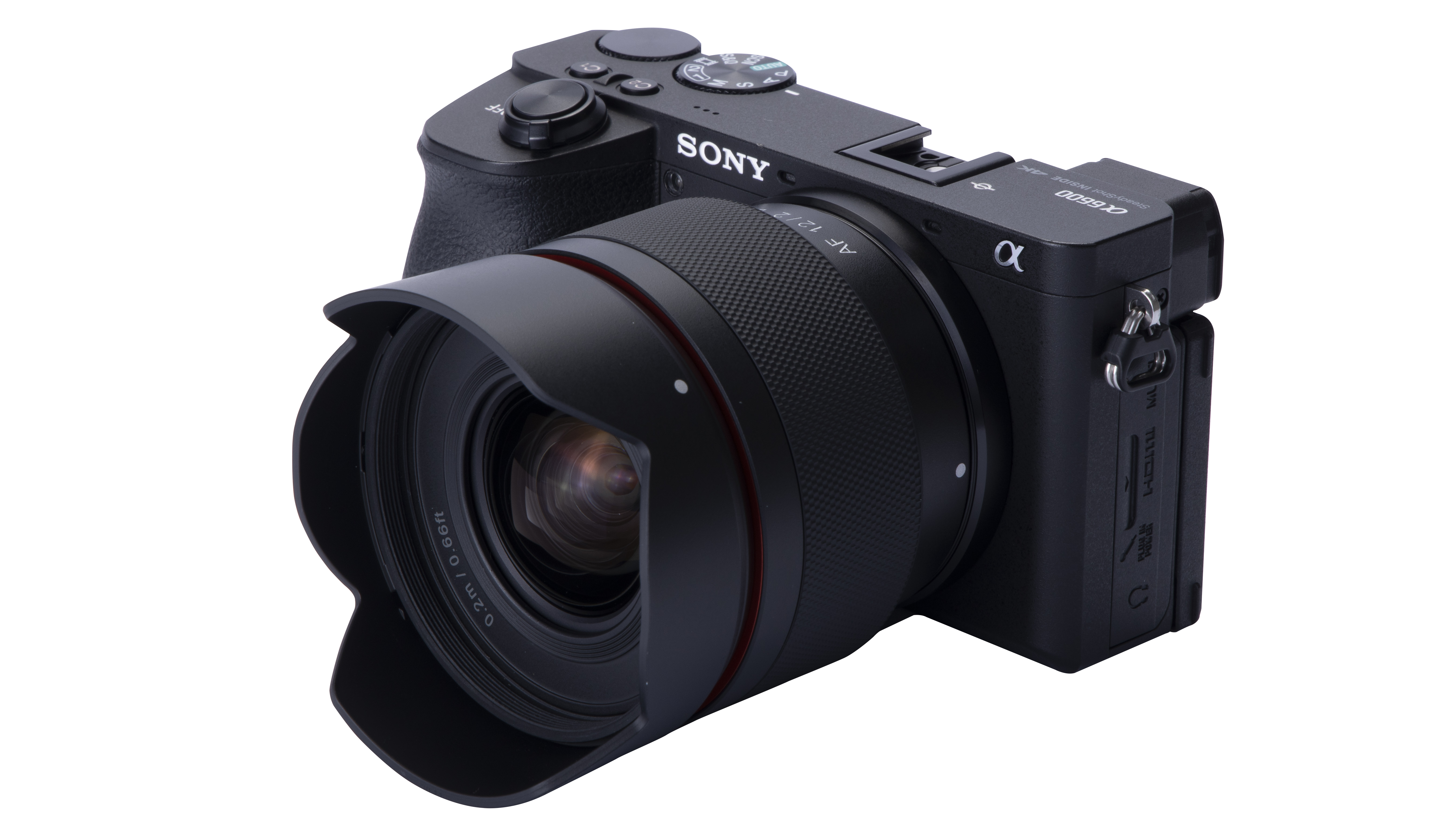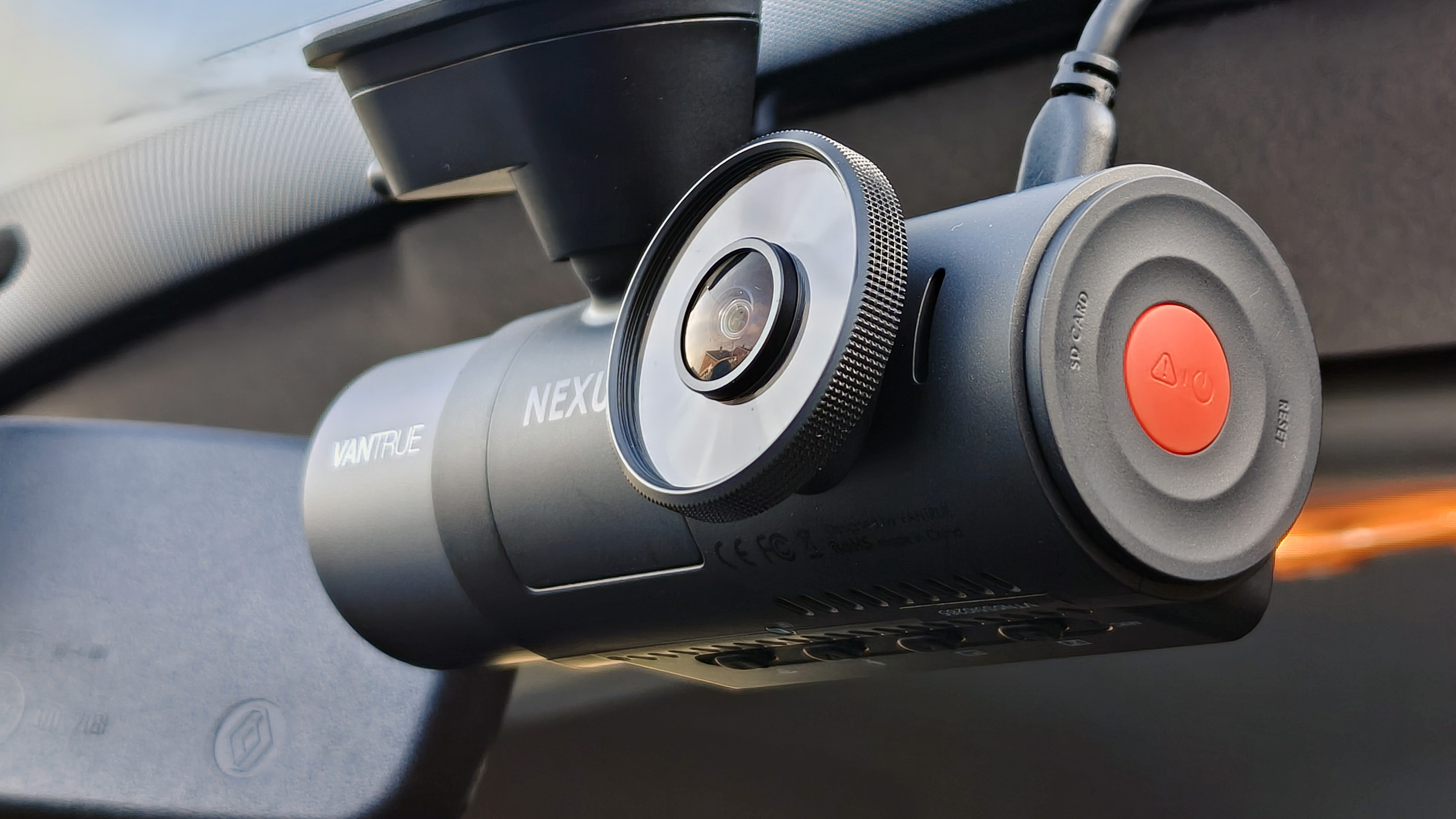Samyang/Rokinon AF 12mm F2 E aims to be the perfect ‘astro’ lens for Sony APS-C
This new Samyang/Rokinon AF 12mm F2 E updates a classic astro lens with autofocus and a new design
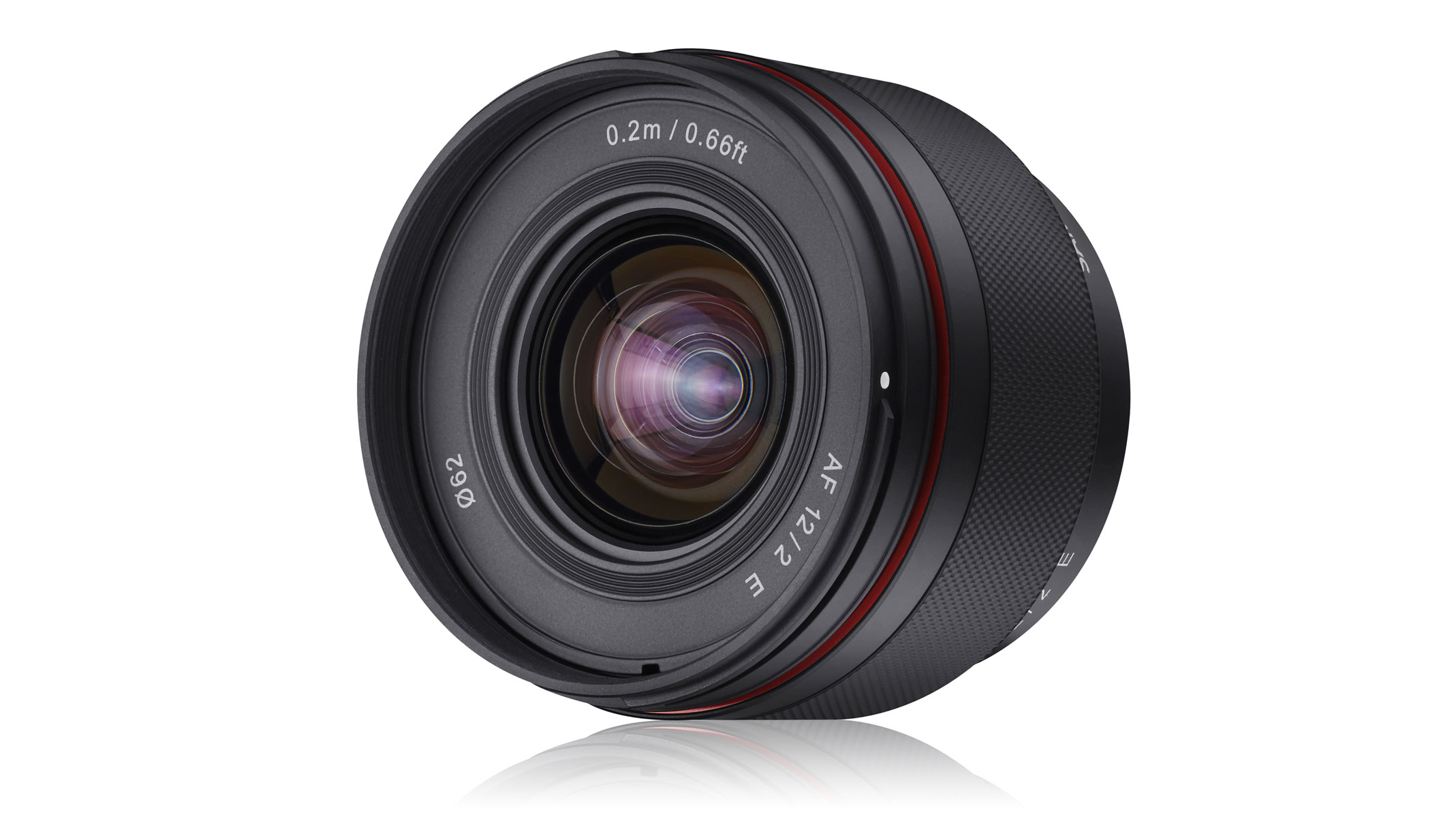
The best camera deals, reviews, product advice, and unmissable photography news, direct to your inbox!
You are now subscribed
Your newsletter sign-up was successful
The new Samyang AF 12mm F2 E (or Rokinon 12mm F2.0 AF in the US) is a fast ultra-wideangle prime lens for Sony APS-C cameras, and while the company has made AF lenses for Sony full frame cameras, this is its first for the APS-C Sony 6000-series cameras.
Samyang already makes a manual focus 12mm f/2 which has been popular amongst astrophotography fans for years, but this new lens brings a new stepping motor (STM) autofocus system to make it much more useful for general purpose photography too.
This lens also follows on from the full frame Samyang 24mm f/1.8 FE lens announced two weeks ago, which the company claimed is a “masterpiece for astrophotography”!
What’s special about ‘astro’ lenses?
Astrophotography can mean using telescopes to show magnified views of planets, star clusters or distant galaxies, but it’s becoming increasingly popular to photograph much wider star fields and constellations with wide-angle lenses.
The primary features needed for this are a wide angle of view and a fast maximum aperture to keep exposure times and ISO settings low.
With an equivalent focal length of 18mm (in full frame camera terms) and a maximum aperture of f/2, the Samyang AF 12mm F2 E ticks both boxes – but it should also be ideal for general photography too.
Samyang AF 12mm F2 E in detail
The Samyang/Rokinon AF 12mm F2 E has a sophisticated optical construction, with 12 elements arranged in 10 groups, and including one hybrid aspherical element, one regular aspherical element and three ED (extra low dispersion elements) in order to minimize chromatic aberration and distortion and product maximum sharpness.
The best camera deals, reviews, product advice, and unmissable photography news, direct to your inbox!
This is a new design compared to the original manual focus 12mm F2.0 lens. A stepping motor AF mechanism is used to provide smooth, quiet AF with a larger internal focus group, and the new lens has a minimum focus distance of just 19cm – probably not useful for astrophotography, but perfect for wild perspective effects with close-ups.
The Samyang AF 12mm F2 E also has improved UMC Ultra Multi Coating to reduce lens flare and ghosting and increase contrast, and it has an all-metal housing.
Samyang says this is the smallest and lightest AF 12mm lens currently on the market, with a length of 59.2mm and a weight of just 213g.
Sample images




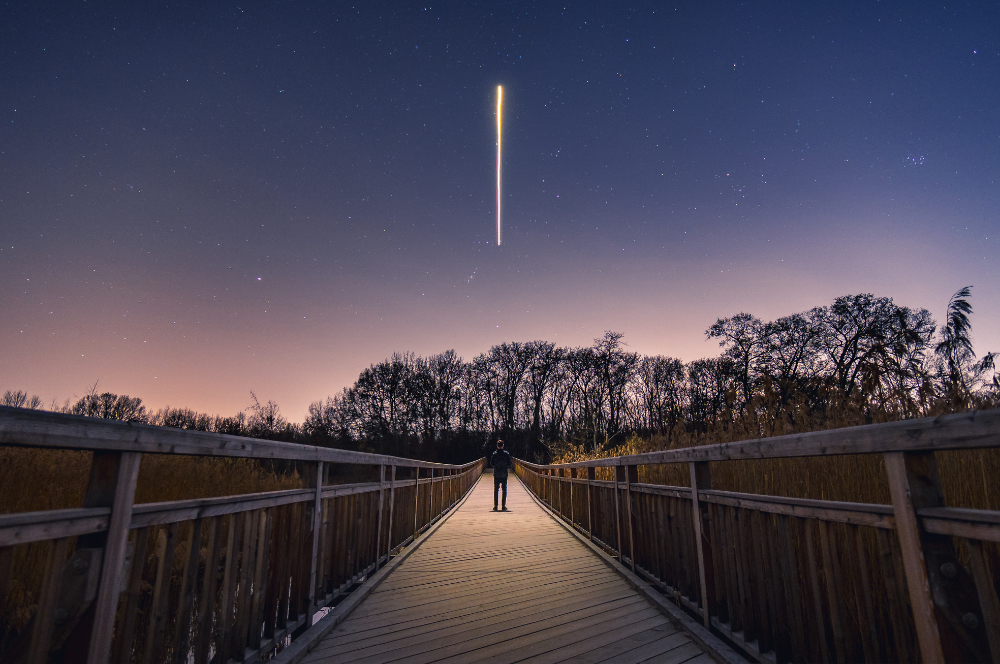
Samyang AF 12mm F2 E price and availability
The Samyang AF 12mm F2 E will go on sale from early May 2021 at a price of £359.99 in the UK, with the Rokinon 12mm F2.0 AF going on sale in early June for $499.
Read more:
• Best lenses for astrophotography
• Best cameras for astrophotography
• Best light pollution filters
• Best star tracker camera mounts
• Best telescopes for astrophotography
• Astrophotography tips
• How to use an intervalometer

Rod is an independent photography journalist and editor, and a long-standing Digital Camera World contributor, having previously worked as DCW's Group Reviews editor. Before that he has been technique editor on N-Photo, Head of Testing for the photography division and Camera Channel editor on TechRadar, as well as contributing to many other publications. He has been writing about photography technique, photo editing and digital cameras since they first appeared, and before that began his career writing about film photography. He has used and reviewed practically every interchangeable lens camera launched in the past 20 years, from entry-level DSLRs to medium format cameras, together with lenses, tripods, gimbals, light meters, camera bags and more. Rod has his own camera gear blog at fotovolo.com but also writes about photo-editing applications and techniques at lifeafterphotoshop.com
